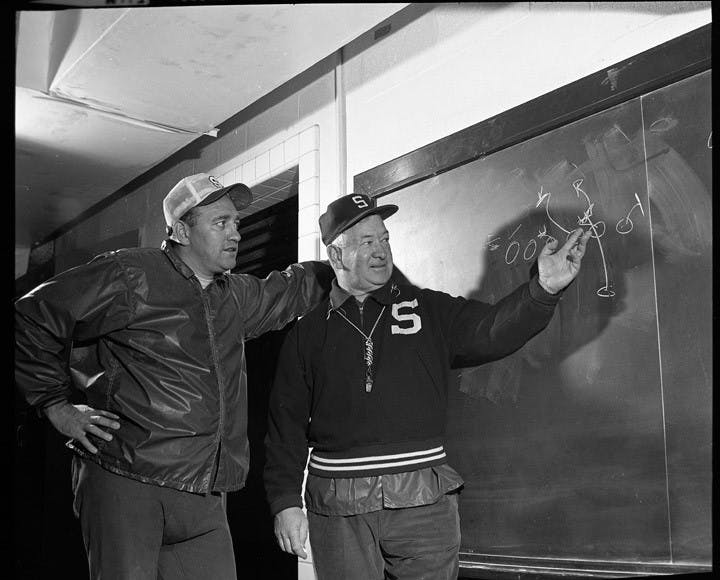A new documentary by Maya Washington, daughter of former MSU wide receiver Gene Washington, is set out to highlight issues pertaining to race in college football throughout the 1960’s.
The film is entitled “Through The Banks of The Red Cedar” and aims to tell the story of the 1965 MSU football team and showcase how MSU head football coach Duffy Daugherty used his unbiased recruiting process to bring African American players to the MSU football team, which in turn helped the team become one of the top programs in the country throughout the 1960s.
For Maya Washington, the idea for the film first came to her after attending the memorial service in 2011 for the late MSU football player Bubba Smith with her father.
“It was really the first time that I came to understand the impact Bubba Smith specifically had on my dad’s life,” Maya Washington said. “And I started to contemplate how that had a direct impact on my life.
“The thing that really made it personal for me was the evening that we were all gathered at Bubba’s home the night before the memorial service, and so my dad and his teammates and college classmates and Bubba’s neighbors were over just telling stories about him and remembering their good ol’ days from college. ... To hear these stories and get a sense of this camaraderie really touched my heart because it was the first time I was able to connect with him in a way.”
Breaking the race barrier was no easy task, but it was nothing Daugherty couldn’t handle.
He would travel to southern states and hold camps for black coaches and in return those coaches would recommend players for Daugherty to recruit.
The 1965 Spartan football team had 18 black players and was one of the most diverse teams in college football history up to that point.
“We weren’t allowed to play with white students down in Texas,” Gene Washington said. “Everything was closed to black athletes at the time. My most important memory was leaving the segregated south, coming and playing football for Duffy and being offered a scholarship to play college football ... The ‘65 championship was very important to me but I had to get to school and I had to leave the south first.”
Gene Washington also recalls how moving to East Lansing changed his life.
“When I started off as a freshman, in terms of how I was treated, it was a refreshing difference,” Gene Washington said. “The climate, the culture, it was like night and day. It was really a breath of fresh air. Everybody was very receptive.”
Close friend and former MSU teammate Clinton Jones also weighed in on the transition from growing up and facing racism on a daily basis.
“Michigan State has been a forefront for racial diversity, integration, but a more accurate description of Michigan State’s culture is realizing that we all have a shared humanity,” Jones said. “Our coaches treated us all equal, with tough discipline and love. We were different in body but one in mind.”
Jones went on to talk about how race relations have evolved over the years.
“There was a time, if you were black, you couldn’t be a quarterback or linebacker because blacks weren’t intelligent (enough) to play those positions,” Jones said. “But those were old, erroneous, ignorant thoughts that had to change. We’re in the 21st century and this generation is changing that ... you can’t legislate the heart. You can’t legislate respect. You can’t make people do that, it has to come out of their hearts.”
Currently “Through The Banks Of The Red Cedar” is in post-production editing and is expected to be released at some point during 2016.
Audiences can get their first look at the film Thursday, Sept. 10 in Conrad Hall from 6 - 9 p.m. There will be a few scenes played, followed by a Q and A session with Maya Washington, Gene Washington and Jones.
The event is free to attend and open to the public, but guests must RSVP online or by calling 517-353-7896.





